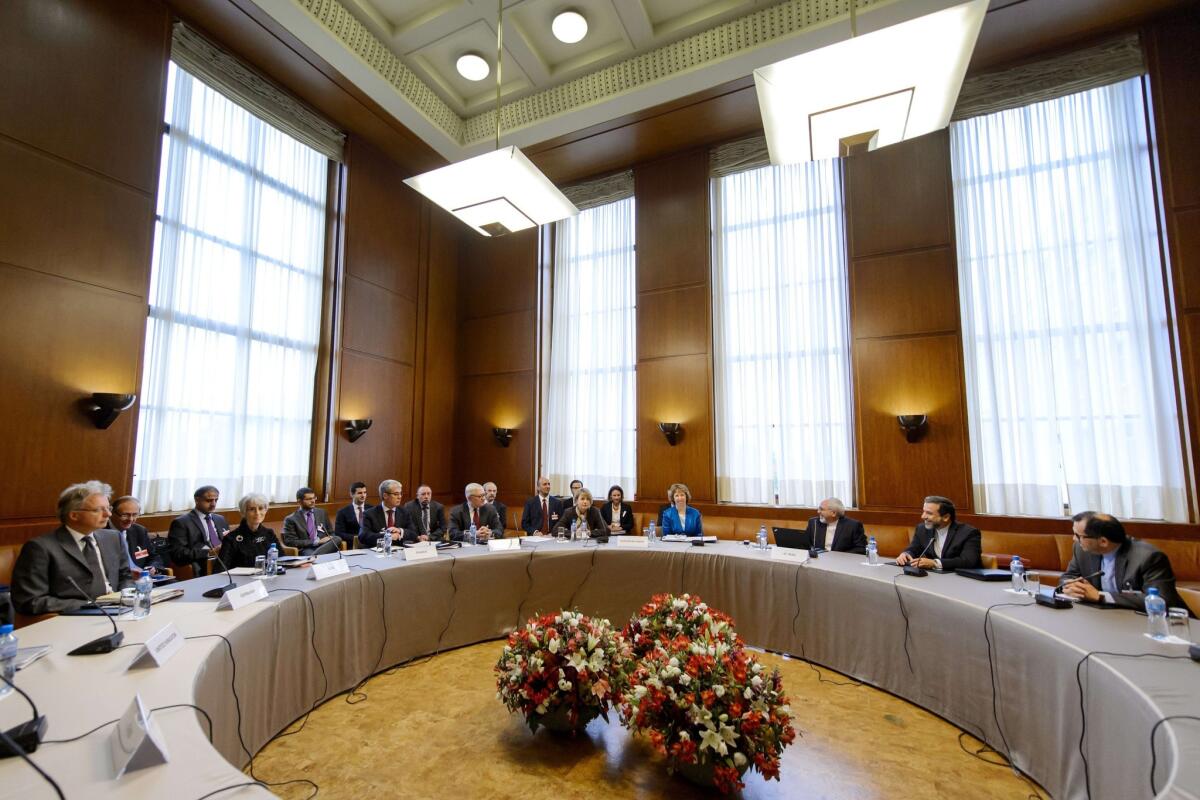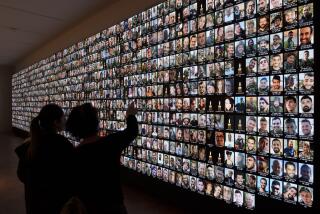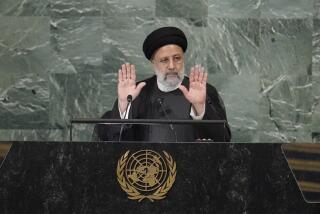Iran nuclear talks called ‘substantive’; next round set for November

GENEVA – Iran and six world powers Wednesday hailed the latest round of negotiations on Tehran’s disputed nuclear program as “substantive and forward looking” and set an accelerated schedule of meetings to find whether they can strike the deal both sides want.
The discussions, begun at a moment of renewed hope for progress, were described as difficult and tense at times. Yet the Iranians and their negotiating partners were able to reach a rare agreement on a joint statement praising each side and signaling their commitment to a diplomatic solution to the standoff.
A senior U.S. official said that in years of diplomacy, the two sides had never had such “intense, detailed, straightforward, candid” talks. The Iranian government, which until the arrival of a new administration in August had been mostly hostile to world pressure against its nuclear program, praised the discussions in the state-controlled press.
Even so, the two sides provided few details of their talks, leaving it unclear whether Iran has come any closer to accepting immediate curbs to the program, which many countries fear is aimed at acquiring a nuclear weapons capability.
It was also unclear whether the United States and the five other powers were any closer to lifting crippling economic sanctions on Iran, or would at the close of a deal accede to Tehran’s demand that it be allowed to enrich uranium for civilian purposes. Highly enriched uranium can we used as fuel for a nuclear bomb.
The lack of proof of progress could draw fire from the U.S. Congress, which has demanded quick and “verifiable” evidence that Iran has had a change of heart, and from wary U.S. allies such as Israel and the Persian Gulf states, which are concerned that the Obama administration might be too eager to appease Tehran.
Congress has been threatening to add more tough economic sanctions on Iran, perhaps its toughest ever. But Undersecretary of State Wendy Sherman, head of the U.S. negotiating team, appealed to lawmakers this month to delay any action until this week so Iran could lay out its proposals.
Diplomats declined to provide many details of the negotiations for fear that they would stir opposition that would undermine progress.
The six world powers – the United States, Russia, China, Britain, France and Germany – said negotiators would meet again in Geneva on Nov. 7 and 8, and probably soon thereafter as well. In the meantime, technical experts will meet to discuss details of nuclear safeguards and sanctions issues.
ALSO:
Inspectors visit 11 chemical weapons sites in Syria
Pakistani official, seven others, killed by suicide bomber
Political gridlock over U.S. debt not just America’s problem
Twitter: @richtpau
More to Read
Sign up for Essential California
The most important California stories and recommendations in your inbox every morning.
You may occasionally receive promotional content from the Los Angeles Times.











